Microsoft's Surface Ergonomic Keyboard does a lot right for a high price
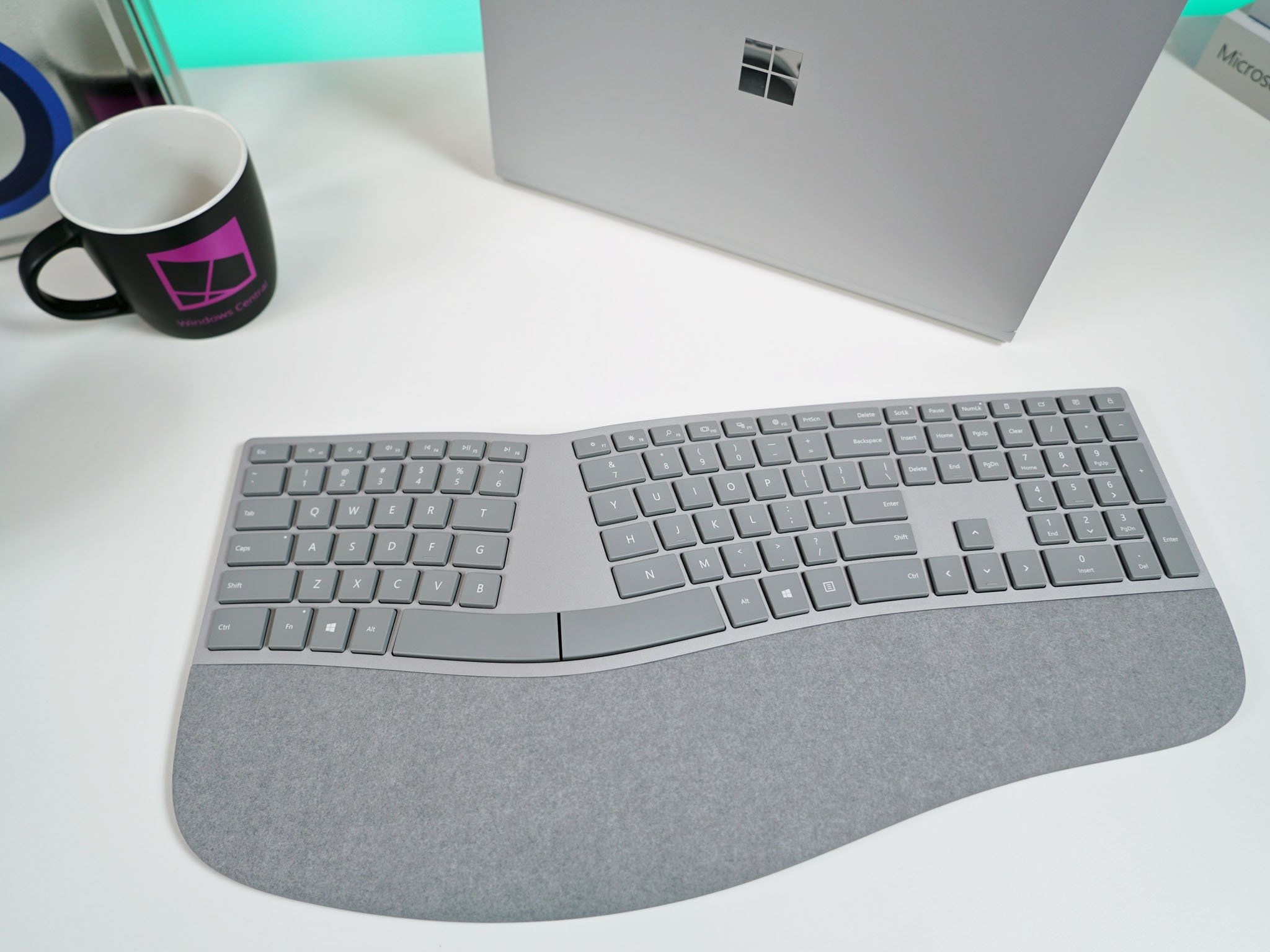
Ergonomic keyboards are an oddity in the world due to their divisive design. The biggest hurdle is that it can take a few weeks to get used to and many people would rather stick to the familiar. It's akin to learning to walk in those orthopedic rocker shoes.
The new Surface Ergonomic Keyboard ($129.99) is not cheap, but it does earn its Surface branding with high-quality materials and excellent typing. I've been using the keyboard for the last few days, and there is a lot to like here if you are already an ergonomic convert, or looking for a change.
Why ergonomic
Ergonomic keyboards are designed to mimic how our hands and wrists move naturally. Traditional keyboards require you to bring your arms and wrists inward causing strain when typing. Note, however, this effect is mostly noticed for typists who use all ten digits. If you hunt and peck with your index fingers, an ergonomic keyboard is no big deal.
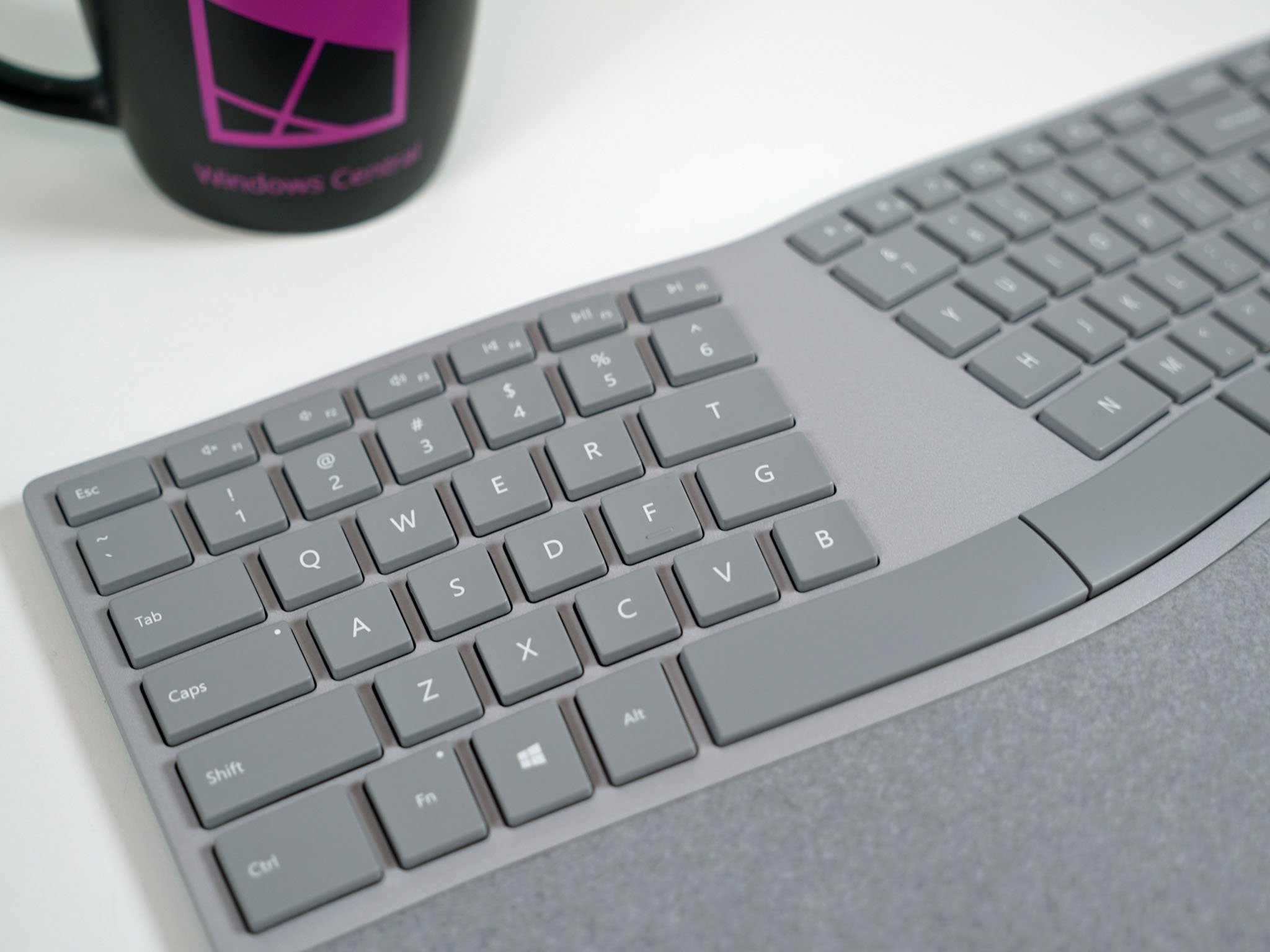
Microsoft has been making ergonomic keyboards for years. In fact, they're one of the few mainstream companies that still sell them, and that is mostly due to their design matching human performance metrics to a tee.
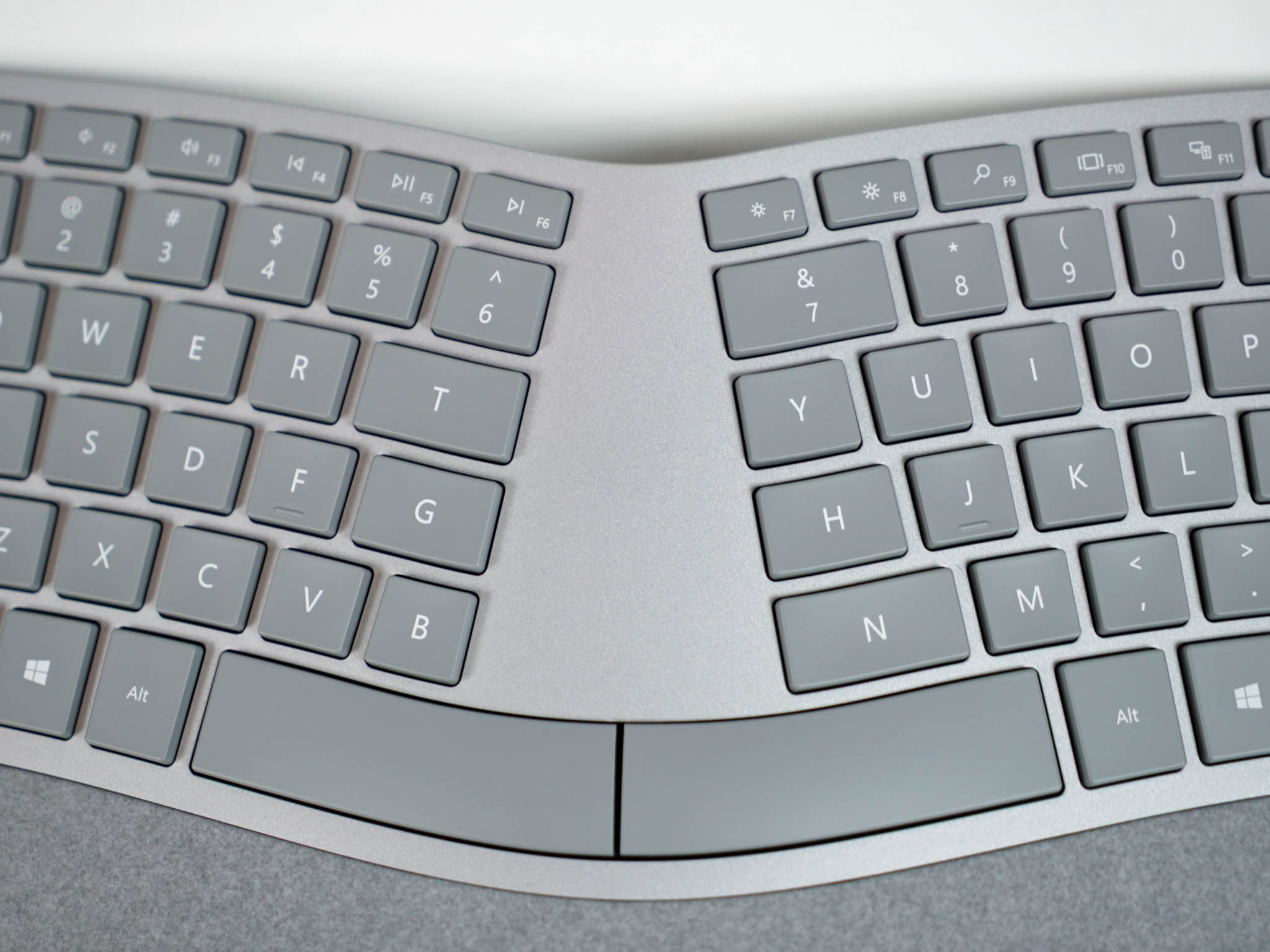
I count myself as one of the converts. I'm an efficient typist who can blast through a 500-word article in minutes, and I can spend most of my day typing out emails, articles, and social. That means I need a real keyboard and Microsoft's ergonomic offerings have been great in the past.
Not just the Sculpt Ergonomic Keyboard in gray
The new Surface Ergonomic Keyboard borrows a lot from the previous Sculpt Ergonomic Keyboard (I own both), but no, they are not the same. Here is what's new with the Surface version:
- Bluetooth 4.0/4.1 LE (no dongle)
- New keys and typing mechanism
- Aluminum instead of plastic material
- Included number pad instead of separate
- Alcantara for the cushion/base
- Filled in Split area
- No optional riser for the base
- Updated media keys (F1-F12, etc.)
Microsoft has taken the Sculpt Ergonomic Keyboard and built upon it for the new Surface edition. The typing experience is new and slightly different. Thankfully, there is no 2.4 GHz USB receiver dongle needed — this keyboard is 100% Bluetooth SMART supported. Pairing is simple and takes just a minute with any PC. There is also no software to download, unlike the Sculpt, for advanced configuration.
Get the Windows Central Newsletter
All the latest news, reviews, and guides for Windows and Xbox diehards.
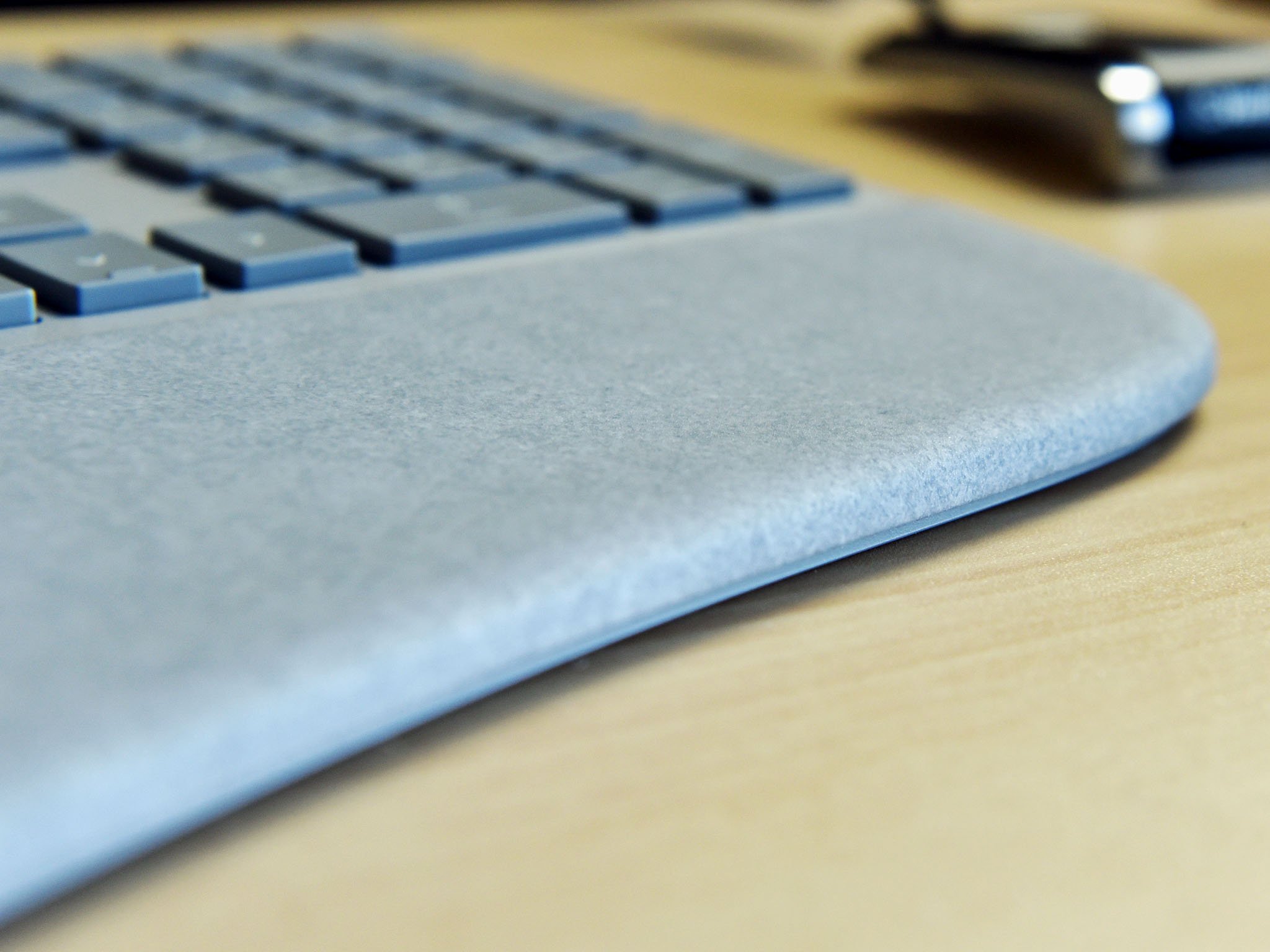
Neither the Sculpt nor the Surface Ergonomic Keyboards feature backlit keys. That limitation is likely due to two AAA batteries (down from three) to power the device for up to one year. Backlit keys, which would be fantastic, would drain the batteries within in weeks if not days.
I'm also glad to see the media keys (F1-F12) refreshed to match Windows 10 better. Here is the updated assignment:
- F1 – Mute
- F2 – Volume down
- F3 – Volume up
- F4 – Rewind/Back
- F5 – Play/Pause
- F6 – Forward/Skip
- F7 – Brightness Down
- F8 – Brightness Up
- F9 – Search/Cortana
- F10 – Task View
- F11 – Wireless display/Project
- F12 – Settings
There are also now keys for Show Desktop, Action Center, and Screen Lock, are of which all very welcome additions. I find these keyboard shortcuts great for productivity and ease of use — especially the one-button screen lock.
Typing performance
I'm coming from the Sculpt Ergonomic Keyboard, and I can say even here there is a small learning curve with the new Surface version. It took a good two days before this keyboard began to feel normal. That's not bad, but even I was surprised at the different typing experience and how it felt "weird."
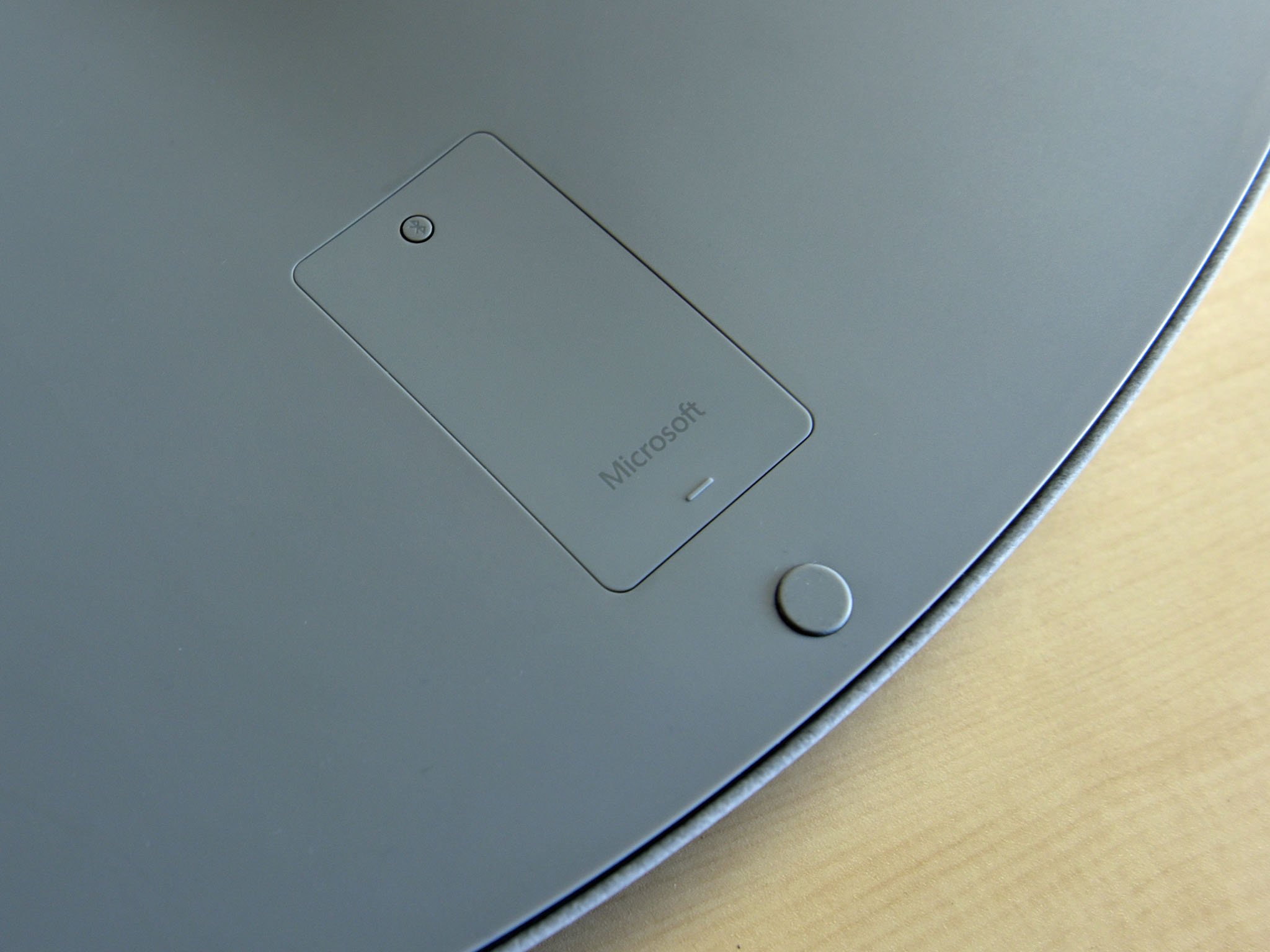
If you have never used an ergonomic keyboard, it could take much longer before you get used to it. Put it this way: I used an ergonomic keyboard, went all mobile with a laptop for a few years, and came back to ergonomic. Even then, it was weeks before I felt at home again.
The keys on the Surface edition (versus Sculpt) do feel different in two ways. One, the bounce back and clicking is more satisfying with improved quality reminiscent of the Surface Book keyboard. The key sizes are also now slightly larger, with a consistent key size across the keyboard instead of the narrowing upper row keys of the Sculpt keyboard.
The all-gray look shows less dirt and dust, as opposed to the smear-prone glossy black Sculpt keyboard. It remains to be seen how well the faux-suede Alcantara on the base holds up, but so far, I like it. It's smooth, soft, but less squishy than the Sculpt edition.
As someone who used the "lift" on the base to raise up the Sculpt Keyboard, I was a bit saddened to see it not included with the Surface version. After a few days, however, I cannot say it has dramatically or negatively impacted by the experience.
Bug - Wake up?
One issue I have noticed and I have heard others have experienced with the new Surface Mouse, Keyboard, and my Ergonomic is not trivial: These devices can't be used to wake the PC from Sleep (Standby).
Clearly, this must be a bug with the driver. The driver is pulled down when you pair the device, and there must be some setting that is overlooked. With the Sculpt keyboard and mouse, I could wiggle the mouse or tap the keyboard to wake my PC, but now … well, I have to use another peripheral. If you've gone all in with the Surface keyboards and mice, that's an issue.
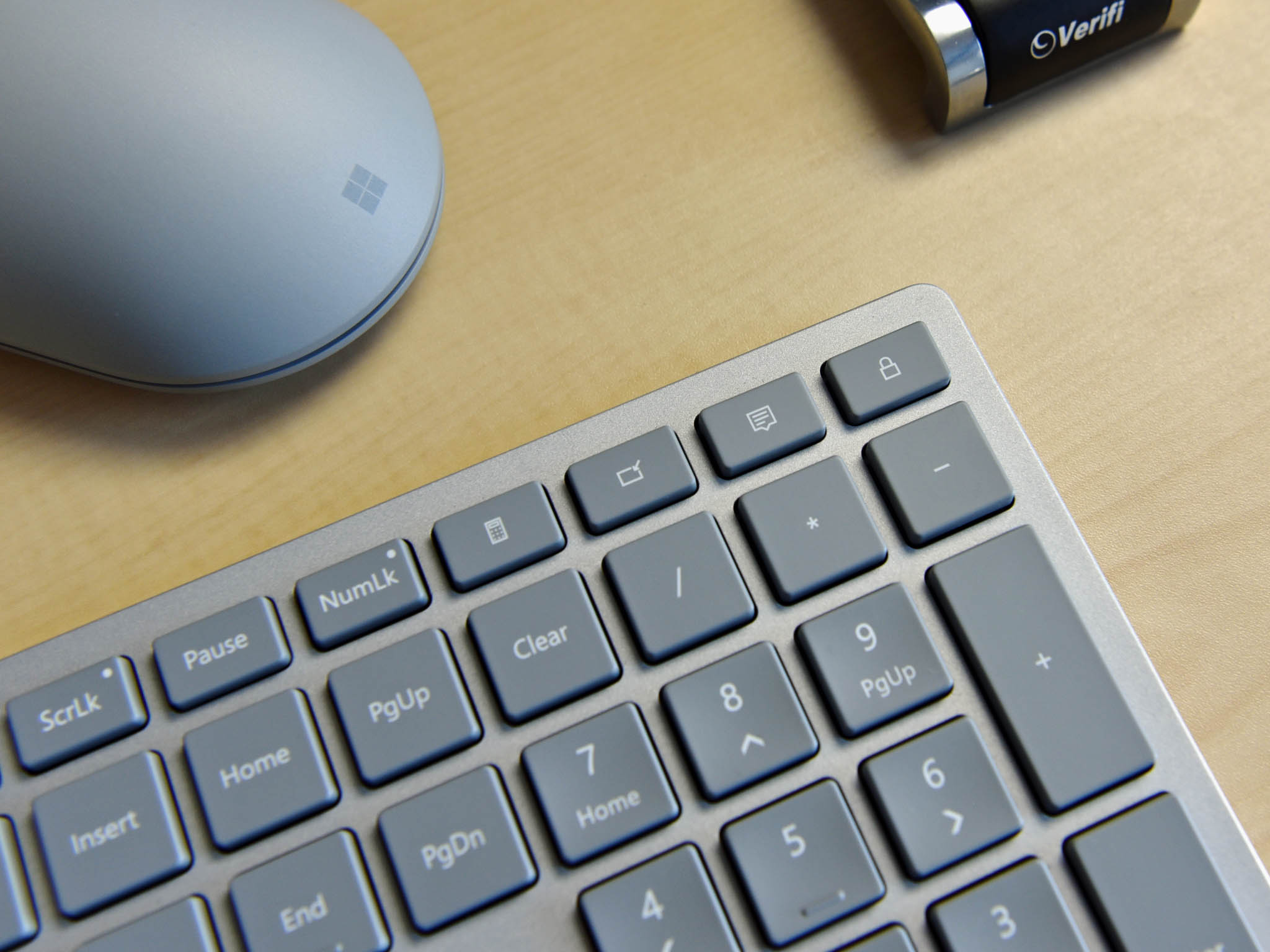
This issue is a deal breaker, but due to the severity of the problem, I know it has to be a bug. Interestingly, Microsoft is not selling this keyboard right now. Some shipped early (including mine), with shipments not resuming until later this month. The Surface Mouse, however, is available in stores and online.
I've reached out to Microsoft about the problem, and I'm awaiting a response.
Wrap up
As a believer of ergonomic keyboards, I'm glad to see Microsoft is continuing to refine their line. The new Surface edition is better in every way. From improved materials to new typing experience, updated media keys, and Bluetooth SMART support the Surface Ergonomic keyboard just feels great.
At $129.99 the Surface Ergonomic Keyboard is not a bargain. It's very expensive, and there is no denying the markup even if the magnesium and Alcantara are a higher level of quality. However, buying a keyboard is an important thing, not something you should ever skimp out on. It's like the purchase of a good bed. You spend 1/3 of your life sleeping, so why cheap out on something so crucial?
If you're a writer and having the best keyboard is important, consider the Surface Ergonomic one. It will take weeks to get used to it, but once you do you'll understand why so many of us are die-hard converts. Your hands, wrists, and arms will be grateful too.
For casual typists, gamers, or those who don't write often you'll be okay with the Surface Keyboard (non-ergonomic) or any other that fits your budget.
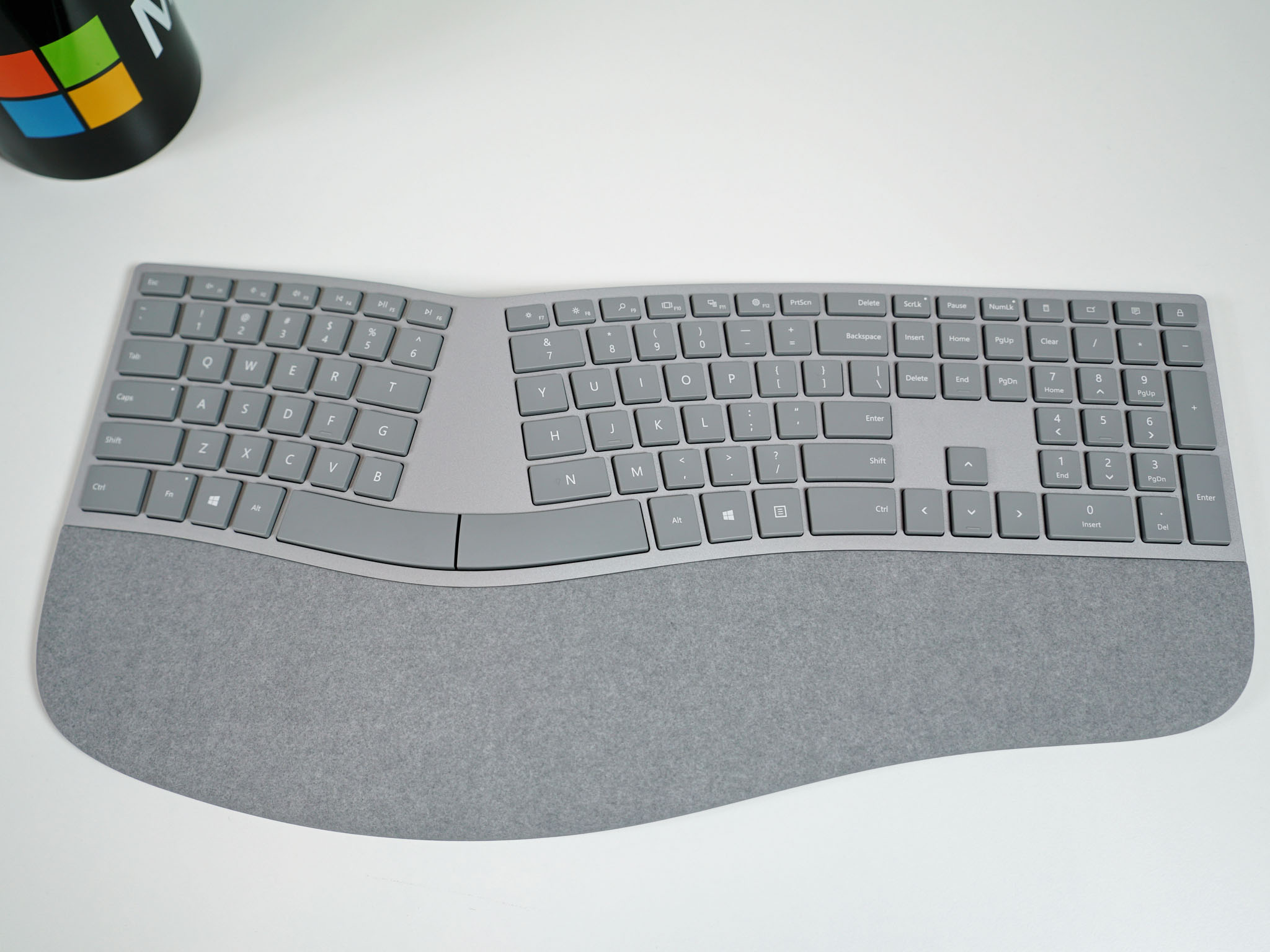
My only issue with his keyboard is the Sleep/Low Power State situation. It's not trivial, and I hope Microsoft makes a fix right away. It's hard for me to recommend the Surface Ergonomic Keyboard as is, but I'm also very confident that this bug will be fixed soon.
Update June 30, 2017: Due to some reports and my own experience, I'm giving a slight downgrade to this keyboard. While typing remains excellent the Alcantara can degrade over time for excessive use. Microsoft will replace any such devices, but you may want to take that into consideration.

Daniel Rubino is the Editor-in-chief of Windows Central. He is also the head reviewer, podcast co-host, and analyst. He has been covering Microsoft since 2007 when this site was called WMExperts (and later Windows Phone Central). His interests include Windows, laptops, next-gen computing, and wearable tech. He has reviewed laptops for over 10 years and is particularly fond of 2-in-1 convertibles, Arm64 processors, new form factors, and thin-and-light PCs. Before all this tech stuff, he worked on a Ph.D. in linguistics, performed polysomnographs in NYC, and was a motion-picture operator for 17 years.
